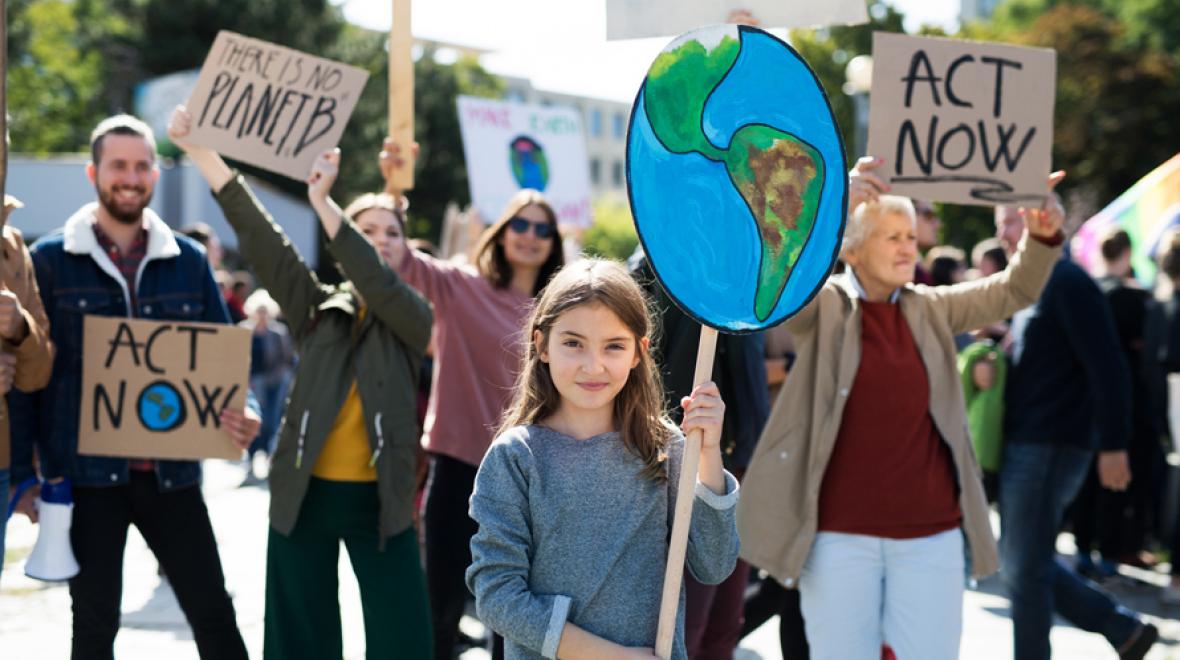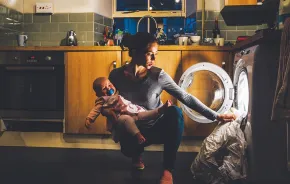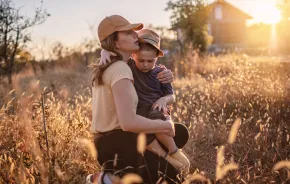
Photo:
iStock
When I was first approached about writing a monthly tolerance-themed column in 2019, which was meant to explore increasing rates of hate crimes and declining levels of empathy in our schools and communities, I hesitated. Some concerns were practical. As a full-time journalist and parent of three school-age children, I didn’t have time for another big commitment. Could I carve out the time and space in my schedule — and my head — to do the topics justice?
I also thought about the emotional impact of reporting on topics that I’m heavily invested in. As a longtime health and family journalist, I’ve covered all manner of meaty topics, including losing a child, miscarriage and suicide. Over the years, I learned the hard way that tackling heavy topics month after month takes a mental toll. Could I do this work, as well as meet my other deadlines, without burning out?
Finally, I have done enough reporting on topics related to equity and social justice to know that I’m far from an expert. There are many others — some of whom I’ve had the honor of interviewing for various articles — who are. Wouldn’t one of those people be better in this role?
But then my oldest daughter, a freshly minted middle schooler, began coming to me with questions about race, privilege and social justice. In a journey I talk about in “Parenting While White,” my mid-2019 interview for the “Interchangeable White Ladies” podcast, I quickly realized that all the things I’d done as a progressive white parent, such as enrolling her in an anti-bullying after-school club, reading her books by authors of color and talking about our region’s indigenous cultures, weren’t nearly enough.
I knew I needed to talk more explicitly with my kids about my values regarding racial and social equity. Even when doing so pushed me outside of my comfort zone — and it did, often — I didn’t get to opt out. Instead, I needed to use my position of privilege to further important conversations and elevate the voices of those doing important work.
Over the course of the year, I reported on equity in many forms — racial, social, digital — along with racism, privilege, hateful speech and how intersectionality affects parents’ and kids’ abilities to access needed resources and support. Viewing the topic through a more optimistic lens, I also reported on ways to boost empathy, inclusion and kindness in order to raise the kids we know our world needs. While there is still more ground to cover, the scope of the reporting felt both wide and deep.
Looking back on the year of coverage, I remain firmly grateful for the opportunity to interview changemakers such as racial justice educator Erin Jones, newly elected Tacoma Public Schools board director Lisa Keating, and athlete and coach Donald Watts about how we can create more inclusive parenting communities. I’m deeply impressed by our brave, thoughtful, inspiring youths and the parents, teachers and coaches guiding them.
As impressive as today’s kids are, though, I’m concerned that we might be piling on too much pressure, even setting them up to fail. I’ve seen enough “The kids will save us!” messaging on social media to know that we’re counting on today’s youth to simultaneously protect the environment, reshape public policy and achieve world peace. Right after they correct economic inequality, save the bees and figure out a replacement for disposable straws. Simple, right?
The thing is, they’re up against a pretty significant challenge: demographics. Although today’s kids are undeniably incredible, they can’t do a thing to change the fact that our country is entering a huge, unprecedented demographic shift. Within a decade or two, youths will be outnumbered by people over 65 — primarily baby boomers — for the first time in history.
According to the U.S. Census Bureau, in just 14 years — around the time today’s preschoolers reach voting age — people over 65 will outnumber those under 18. The World Health Organization (WHO) predicts a similar shift. In its Global Health and Aging Report, the WHO predicts that the global population of adults over 65 will nearly triple between 2010 and 2050, when the population of retirement-age adults will significantly outnumber the young.
This isn’t to say that all boomers hold ideals in opposition to those embraced by youth. But we can’t ask kids to change the world without confronting the fact that they’ll soon be outnumbered. Our work to go beyond tolerance and champion inclusion and acceptance is incomplete if it focuses only on our children and excludes their grandparents.
As parents, we need to not only keep having difficult conversations with our kids, but also to have them with our parents and grandparents, our coworkers, our neighbors, our fellow church congregants, local business owners and other community members. Because they vote, and they’ll keep voting for decades to come.
That’s my new charge for 2020: bringing more adults into conversations about our politics, our values and how to create peace. It feels every bit as intimidating as talking to my kids about race and privilege once did, and as writing this column felt in early 2019. I’m not sure how it will go, to be honest. But I’m willing to try. I hope you are, too.
More reading from ParentMap's Beyond Tolerance columnBuilding Cultures of Peace, Understanding and Inclusion: Going beyond tolerance (February 2019) How Sports Build Cooperation and Community: Fewer kids are playing youth sports and why it matters (March 2019) From Color-Blind to Color-Brave: Talking with kids about race (April 2019) Talking to Your Kids About Racist Relatives: Confronting hateful speech in families (May 2019) Fiction Teaches Kids About Empathy: Awesome books that boost compassion, self-discovery and growth (June 2019) The Diet Dilemma: Protecting Kids From Diet Culture: How to foster body positivity amidst diet culture and fat-shaming (August 2019) Technology Access Is an Equity Issue in Education: Increasing digital access and opportunity for Seattle-area kids (September 2019) How to Safeguard Children With Special Needs From Bullying: Protecting students with disabilities from physical and emotional bullying (October 2019) Moral Courage: Raising Kids Who Stand Up for What’s Right Teaching kids kindness, empathy and moral courage (November 2019) How to Raise a Changemaker: Getting kids involved in advocacy (December 2019) |











